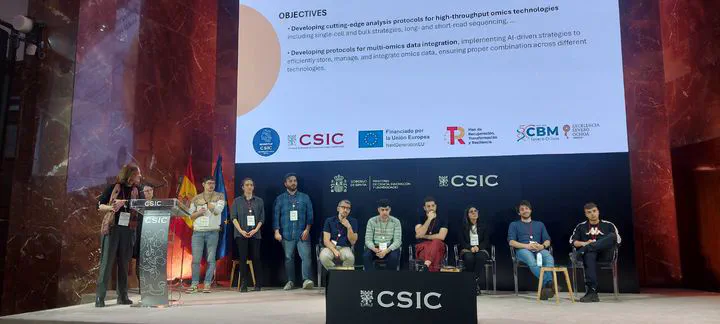GP4PG: A metaheuristic approach to demographic inference using genetic programming
GP4PG: A metaheuristic approach to demographic inference using genetic programming
Mar 12, 2025· ·
1 min read
·
1 min read
Jose M Serradell
 Image credit: Conexion BCB
Image credit: Conexion BCBAbstract
The use of genomic data to make evolutionary inferences has revolutionized our understanding of the processes that shape genetic diversity and adaptation across species. By analyzing genetic sequences, we can trace the evolutionary history of populations, species, and entire lineages, providing deeper insight into how evolutionary forces have influenced the genetic makeup of populations over time. Traditional demographic inference methods rely on summary statistics, which can either be selected by researchers or generated using deep learning techniques. While these deep learning approaches are useful for defining optimal summary statistics for demographic models, their black box nature can make them difficult to interpret. Without a clear understanding of how these algorithms function, making accurate evolutionary inferences becomes challenging. Traditional demographic modelling describes each tested model as a combination of topology and demographic events. However, the ascertainment of such models is often subject to bias, primarily due to the subjective selection of demographic events by researchers, particularly when population substructure is involved. To address these limitations, we developed the Genetic Programming for Population Genetics (GP4PG) methodology, an innovative approach to modelling complex demographic scenarios by applying genetic programming. GP4PG automates the exploration of parameter-free demographic models by coding demographic relationships as graphical structures, enabling optimization through mutation and selection. GP4PG minimizes model bias by only relying on the topology of demographic models rather than predefined parameter assumptions
Date
Mar 12, 2025 12:00 AM
Event
Location
CSIC HQ
Serrano 117, Madrid, Madrid 28006
About the talk:
This talk was one of the events I attended as a CSIC-Momentum postdoctoral researcher. As one of the first gatherings in the program, it provided an opportunity to connect with fellow Momentum scholars and share our initial challenges. It was also fascinating to learn about the innovative projects others are working on and to gain insight into the future courses and events planned for the coming years in the Momentum program.